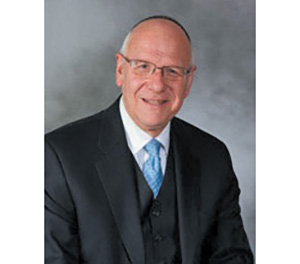
Simchat Torah
Chazal’s selection of the first chapter in Sefer Yehoshua as the haftarah for Simchat Torah is certainly understandable, as it flows quite naturally from the final verses of the Torah that are read on this chag. Additionally, one can sense how the memory of Moshe, who had passed on a mere 30 days earlier, haunts the nation as they turn to their new leader with words of encouragement and the promise to follow him as they had followed Moshe. I would also imagine that as we began the Torah reading cycle immediately after completing it, reinforcing the idea that one never completes a mastery of the text, so too, by starting the Book of Yehoshua, and with it the study of Nevi’im, we declare that there is more to Tanach than the Torah alone, and we must study that as well.
Interesting to note as well is the final promise made by the nation (Actually, the 2½ tribes) that they would follow Yehoshua “Rak yih’hiyeh Hashem E’lokecha imach—provided that Hashem will be with you.” And they encourage him and tell him, “Be strong!” Something we could never imagine them saying to Moshe. Understandably, the people are somewhat hesitant regarding the successor. They rightfully wonder: What kind of leader will he be? Will God be with him? Could he bring miracles as his predecessor did? One can argue that they had good reason to doubt Yehoshua. True, he learned in Moshe Rabbeinu’s “kollel” and successfully led the army to victory, but he was one who remained in the background. He was an attendant, an assistant. He “never left the tent” (Shemot 33; 11); he waited for Moshe on Mt. Sinai while Aharon and Chur were given the leadership role. When the people worshipped the golden calf—he was not there. When the nation believed the report of spies, he remains silent, arguing against them only after Calev had silenced them and challenged them. He speaks twice in the Torah—and both times he is corrected by Moshe! The people were right to be concerned and feel a bit insecure.
And yet, Yehoshua proved to be a remarkable leader, one often underestimated. Not only does he lead them throughout his life, not only does he successfully defeat the powerful alliances in Canaan, not only does he keep the people unquestionably faithful to God, but he does all of this while never hearing a complaint against him or any doubt about his leadership. The same generation that questioned Moshe and complained to him during their final year in the desert is one that remained faithful and loyal to Yehoshua.
The Talmud (Bava Batra 75a) tells us that the leaders of the generation compared Joshua to the light of the moon and Moshe to that of the sun. Yehoshua was merely the reflection of his teacher’s light. But perhaps that itself was a secret to his success. One cannot look at the sun but can stare at the moon. Yehoshua was more of an “every man” the people could relate to. One who was “part of them,” one who grew up with them and to whom they could relate. Moshe was, as our rabbis say, almost angelic. A leader to whom it was difficult to get close.
The Malbim points out that Moshe heard God at the burning bush when Hashem told him, “Shal n’alecha me’al raglecha—Remove your shoes from your feet,” while Joshua saw God’s angel before the battle of Jericho and was told “Shal na’al’cha,” remove your shoe. Moshe, standing on holy ground, removed both shoes and immersed himself in the Divine, while Joshua removed but one shoe, keeping one foot in holiness and another resting upon the solid ground of reality. Perhaps that was the secret to his success.
And perhaps a lesson for us as we go from the holiness of the holidays to the mundane world of real life.
Rabbi Neil Winkler is the rabbi emeritus of the Young Israel Fort Lee and now lives in Israel.










